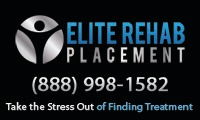Arizona Drug and Alcohol Rehab

The "Grand Canyon" state is a beautiful location with numerous ecosystems, abundant wildlife and boundless open desert that make for an excellent backdrop for self-reflection and being one with nature. If you live in the U.S. southwest region or are searching for a unique setting to recover from drug and alcohol issues, Arizona offers a multitude of inner-city recovery centers and remote luxury rehab facilities that can help you on the right path.
Choosing Arizona Rehab Facilities
Addiction to drugs and alcohol is a major epidemic that affects millions of Americans annually. The National Institute on Alcohol Abuse & Alcoholism (NIAA) website states that there are about 17 million adults ages 18 and older who abuse alcohol, and 1 in 10 children live in a home with a parent who has a drinking problem. In Arizona alone, the National Institute on Drug Abuse (NIDA) has reported that almost 7 percent of all individuals 12 years and older have had had an alcohol use disorder (AUD) in the 2014 to 2015 year.
Despite all of the existing scientific research available, there are still many of those who view substance abuse as a simple lack of resolve, and that willpower is the only thing standing between someone and their recovery.
In truth, drug addiction chemically alters the brain and affects a user’s psychology as a whole. Therefore, addiction is not easily resolved by merely revising one’s habits, but rather by extensive physical and mental intervention. As with other illnesses, recovery starts with accepting that you require professional help.
There are two types of rehab facilities—residential and outpatient—and most require days to months to complete their respective programs. However, NIDA suggests that patients need at least three months on average for a full recovery. There are benefits for both, so let’s explore.
Inpatient Rehab
Residential rehab facilities are wonderfully-crafted to guide you every step of the way. As such, you will also gain from being isolated from potential negative influences from the outside that may cause you to relapse. While it may seem challenging to be separated from your loved ones, inpatient rehab has the highest recovery success rate for long-term sobriety.
With all programs, detoxing is an essential part of the process. However, it can be very dangerous without proper monitoring. In residential facilities, you have the benefit of knowing that there is a medical team ready to wait on you, hand and foot. Generally, this setting is advised for those who need intensive care, but aren’t comfortable being in a group setting. They concentrate solely on you, with a specially-tailored program that addresses all your personal needs. You don’t need to worry about any other responsibilities besides recovery. At the end of it all, residential rehabs are geared toward addressing your entire well-being, not just your addiction.
Outpatient Rehab
Outpatient facilities, on the other hand, are great choices for those who still need familial support, and have loved ones who are stoic enough to ride along the recovery journey with them.
At outpatient programs, you have flexibility in maintaining your responsibilities while embarking on your recovery journey. Outpatient centers typically only require approximately 10 to 12 hours of medical treatment per week. This is a great option for those with young children who need supervision and care, or for those who simply cannot afford to miss work at large. Outpatient facilities utilize morning or nightly meetings to help patients maintain their normal schedules, as well as individual counseling to give you the best possible outcome.
Outpatients will have to regularly visit a hospital or other treatment facility for physical and mental evaluations during the detox phase. They focus on drug abuse education and counseling, and are also used as a long-term treatment regimen.
Alcohol Addiction Treatment in Arizona
With alcohol at the center of most people's social life, it’s sometimes easy for alcohol use disorder (AUD) to fly under the radar. If you suspect that you or your loved one may have developed an issue with your alcohol consumption, here are a few telltale signs to look out for.
- Extreme difficulty having just "one" drink
- Multiple failed attempts to stop drinking
- Recurring thoughts about drinking throughout the day
- Continuous neglect of responsibilities due to a desire to drink
- Consuming alcohol despite the emotional toll it brings yours and your loved ones lives
Alcohol rehab centers treat alcoholism in numerous ways. Detoxification is typically the first step with most treatments as it rids the body of alcohol and other harmful toxins through a carefully-monitored process exacted by medical professionals.
Residential treatment programs require your full stay at a rehab facility during your recovery, as opposed to outpatient programs which allot you more freedom. You have the liberty of remaining at home with family and friends, and you can continue working as schedule. You can also spend time with children and maintain other activities in between your sessions.
Drug Addiction Treatment in Arizona
Drug use and alcohol use are similar when it comes to substance abuse, however key differences between them remain, such as availability. Alcohol is a non-prescription drug that is technically “over the counter,” so the common consensus is that it is not as harmful as narcotics.
In truth, this couldn’t be any less accurate. Both substances poison the body, and can have dreadful long-term effects if left unchecked.
Those who have used drugs for an extended period of time, or in large quantities, a residential treatment program can help provide the “time out” needed to let your body detox. In these types of treatment programs, you will be able to safely detox in a controlled, medically-supervised environment and gain new coping and prevention strategies.
These newfound skills prepare you for a community-based, outpatient environment, which is helpful for those who don't require medical detoxification or round-the-clock supervision. Structure-wise, these facilities vary but in most cases you can expect group therapy sessions, individual counseling, psychotherapy and relapse prevention planning.
Treating Co-occurring Disorders
Substance abuse and mental health go hand-in-hand, which is why dual diagnosis is such an important factor in full-fledged recovery. It’s not always easy identifying which problem is more imminent – your mental health condition or substance use disorder. A dual diagnosis program examines both at the same time, giving you the best chance at completely restoring your health.
According to the National Institutes of Health (NIH), patients who struggle with co-developed mental disorders have better result when when they enroll dual diagnosis treatment programs.
While in these types of programs, you will undergo treatment programs for your mental health along with substance use. This ranges from dual diagnosis therapy to recovery groups, along with family programs, individual counseling, and other therapeutic services.
If you've been formally diagnosed with a mental health condition and are seeking treatment for substance use disorder, you'll need to make an appointment with a mental health rehab or alcohol and drug counselor to discuss your recovery goals and mental health history to determine what next step is right for you and your recovery.
Medication-Assisted Recovery
An addiction professional can help make the detox process as comfortable and productive as possible. In conjunction with your treatment, a doctor may prescribe medication that can help you alleviate withdrawal symptoms or sustain your recovery efforts. Here are some prescriptions typically used for alcohol and drug addiction recovery.
- Buprenorphine
- Methadone
- Naltrexone
- Naloxone
- Acamprosate
- Disulfiram
Dual Diagnosis patients may also receive medication to treat their underlying mental health issue. Here are the different types of psychotropic drugs used to treat mental health disorder.
- Mood Stabilizers
- Antipsychotics
- Antianxiety Medications
- Stimulants
- Antidepressants
Arizona Drug Rehab Centers
Drug use and alcohol use are similar when it comes to substance abuse, however key differences between them remain, such as availability. Alcohol is a non-prescription drug that is technically “over the counter,” so the common consensus is that it is not as harmful as narcotics.
In truth, this couldn’t be any less accurate. Both substances poison the body, and can have dreadful long-term effects if left unchecked.
Those who have used drugs for an extended period of time, or in large quantities, a residential treatment program can help provide the “time out” needed to let your body detox. In these types of treatment programs, you will be able to safely detox in a controlled, medically-supervised environment and gain new coping and prevention strategies.
These newfound skills prepare you for a community-based, outpatient environment, which is helpful for those who don't require medical detoxification or round-the-clock supervision. Structure-wise, these facilities vary but in most cases you can expect group therapy sessions, individual counseling, psychotherapy and relapse prevention planning.
Managing the Cost of Addiction Rehab
Just like any treatment program, the cost of a rehab treatment will vary based on the amount of hours you're recommended to complete. Other factors include amenities, insurance funding and the type of program itself.
Before you get started, it's important to talk with your treatment center about payment plans or other options they may have available. Some residential treatment programs are covered by insurance or by a state's consolidated fund, while others require either a partial or full out-of-pocket payment. Inquire about insurance, statewide consolidated funds, or a scholarship program for free or subsidized treatment.
No matter which option you choose, you will be among others learning to cope from drug and alcohol addiction as well. And it is this sort of community that not only helps you overcome loneliness and isolation, but make wiser choices when it comes to your circle of friends.
Remember, the journey to your recovery starts with one step. Browse our directory of Arizona treatment programs or call 800-772-8219 to inquire about your recovery options.









